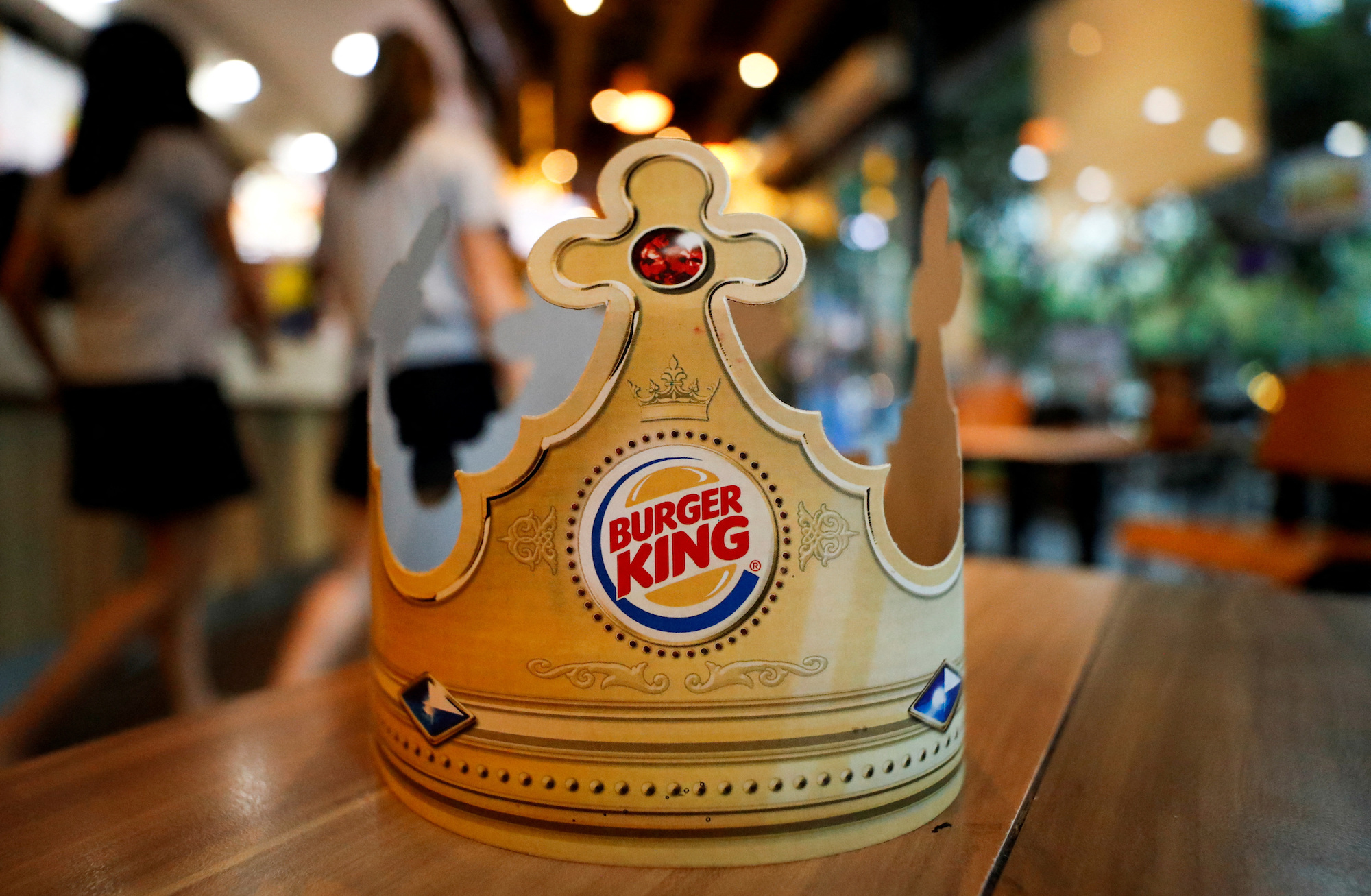By Hilary Russ | Photo by Jorge Silva/Reuters
New York (Reuters) – Burger King is banking on its viral “Whopper Whopper” jingle to lift sales as part of the flagging fast-food chain’s turnaround plan, as broader economic uncertainty pushed two big franchisees into bankruptcy.
The ad, which aired incessantly during National Football League playoffs in January, has drawn younger customers to its restaurants. The company released the earworm on TikTok, so fans could make their own remixes, and Spotify, where it has been streamed more than three million times.
“I’m optimistic about the trajectory of sales in 2023,” said US and Canada Burger King president Tom Curtis in an interview, adding that the jingle’s fervent success was “unanticipated.”
Burger King’s parent company Restaurant Brands International (RBI), McDonald’s Corp, Chipotle Mexican Grill Inc, and other big chains start reporting first quarter sales and profits next week. Investors will be looking for signs that restaurant business is stable as US consumer sales start slipping.
Restaurants—including RBI—are likely to “speak glowingly of this past quarter’s results and strike a cautiously optimistic tone regarding current quarter trends,” said Citi analyst Jon Tower in a note on Friday.
Burger King’s jingle—along with a broader “You Rule” marketing campaign, new restaurant technology. and store renovations—is part of its $400 million “Reclaim the Flame” plan to reverse its loss of customers to other chains, revive run-down restaurants, streamline overly complicated menus and operations and draw more young customers.
Another strategy: adding franchisees. Unlike other fast food chains like Subway that are consolidating restaurant ownership among fewer franchisees, Burger King is expanding the number of owners in its system.
Another Burger King strategy? Adding franchisees. Unlike other fast food chains like Subway that are consolidating restaurant ownership among fewer franchisees, Burger King is expanding the number of owners in its system.
The brand currently has about 375 US operators—5 to 10 more than last year—and has a “robust pipeline” of potential new franchisees, Curtis said.
This year, two large US Burger King franchisees that run more than 200 locations across at least 10 states have filed for bankruptcy, citing poor sales atop surging costs for labor and goods.
Locations involved in those bankruptcies will likely be split up among additional franchisees.
“We don’t want to diminish the importance of this crisis, but we also will leverage it to bring in new operators,” Curtis said.
The company will also consider intervening to help certain franchisees if it knows operators are “100 percent committed and are in their restaurants consistently,” Curtis said. The ideal operator would run about 50 or 60 restaurants in their community.
According to Citi’s Tower, any lift to Burger King’s share prices could be “limited” unless it proves its turnaround plan is advancing with data showing the “broad financial health of franchisees that addresses concerns about additional bankruptcies/closures.”
(Reporting by Hilary Russ; Editing by Josie Kao)





